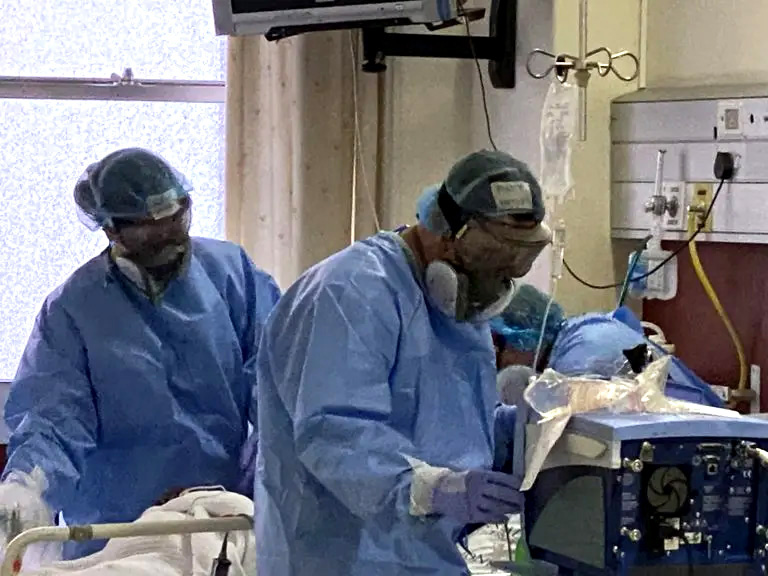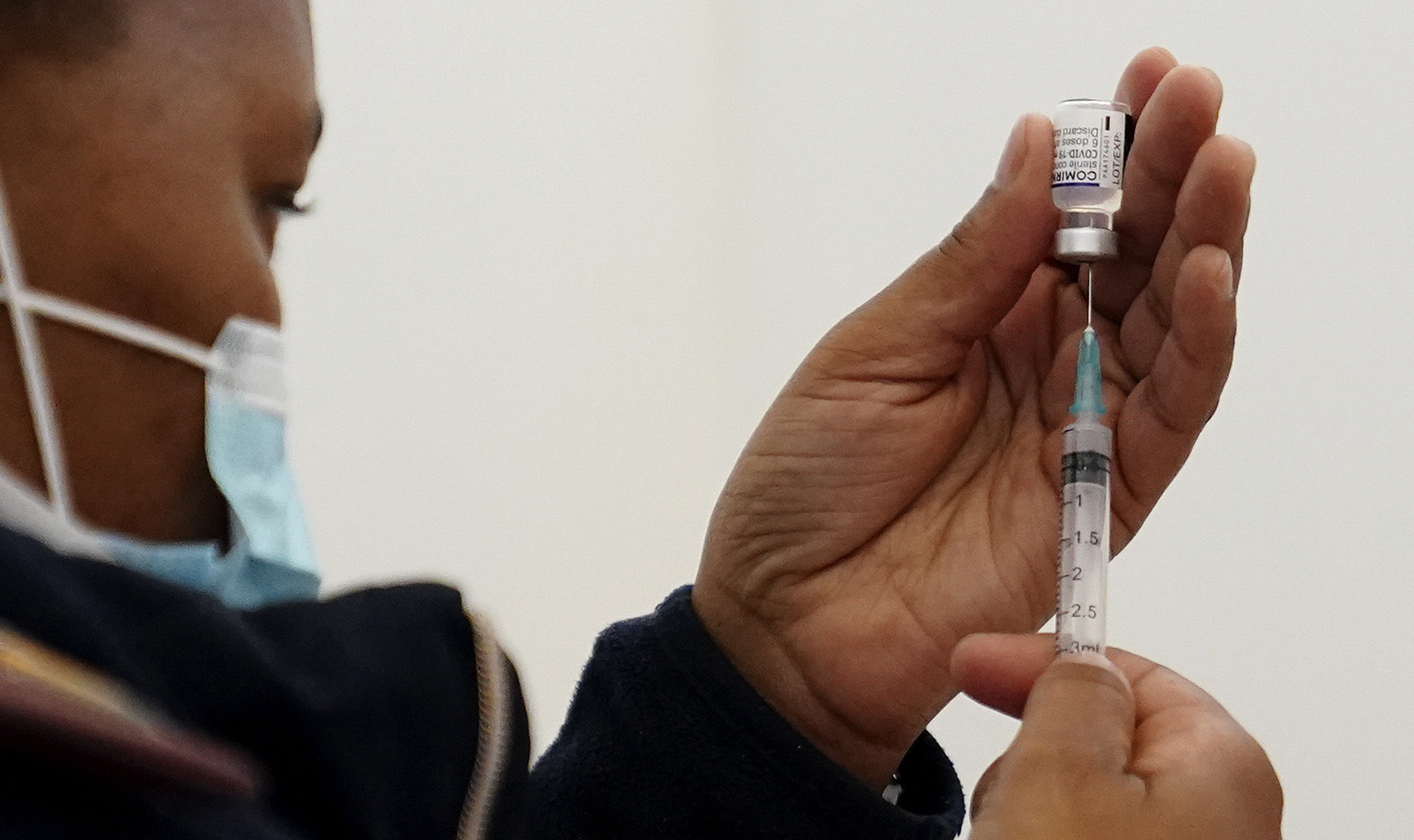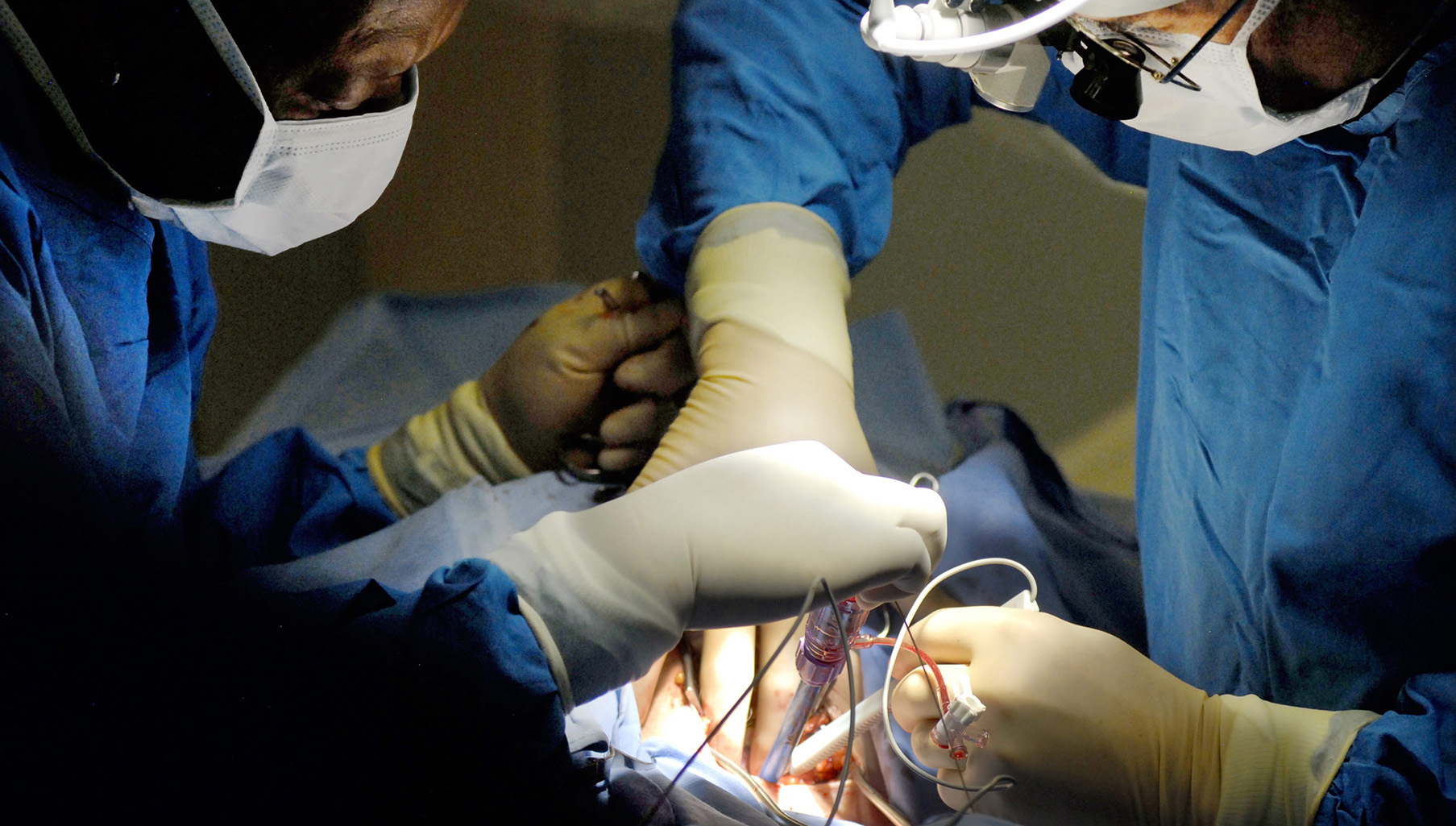Professor Kathryn Chu, director of the Centre for Global Surgery at Stellenbosch University’s Faculty of Medicine and Health Sciences, says that compared with infectious diseases such as HIV, TB and Covid-19, surgical conditions and care are not a major priority in the public health system.
“Surgery as a whole has not really had a national strategy or plan and I think that is a problem,” she says. “Our government and province do not have a coordinated surgical plan. There’s nothing in the National Health Plan about surgery – it’s not even mentioned.”
 One possible way to better coordinate surgical care is to devolve some surgical care procedures to smaller district hospitals nearer to healthcare users. (Photo: Nasief Manie / Spotlight)
One possible way to better coordinate surgical care is to devolve some surgical care procedures to smaller district hospitals nearer to healthcare users. (Photo: Nasief Manie / Spotlight)
The makings of a plan but no funding
Chu says that in 2019 a technical working group on national safe surgical care was formed to write a national surgical plan. This is now an official ministerial advisory committee and Chu is a member of the core team.
“And now that [National Health Insurance] is coming, the idea is to have a surgical benefits package defined through this and there will be different factors to consider to identify surgical best buys, which conditions should be covered, how much should it cost the system, what is the burden of disease of that surgical condition, etc.”
The plan – a National Surgical Obstetric and Anaesthesia Plan – is described as a “blueprint to define a national surgical package of care” and focuses on key areas including human resources, service delivery, infrastructure, supply chain, governance, finance and informatics. Among its main objectives is to ensure the “implementation of an equitable, accessible and comprehensive surgical, obstetric and anaesthesia care system” for South Africa.
The plan was to be implemented from January 2022, but according to Chu there have been many delays and research is still under way. She says there are quite a lot of challenges and there has been no money forthcoming from the government to fund this.
“It’s still planned but there are definitely delays. It is still very much necessary but is taking a lot longer than we thought. It’s going to cost millions of rands to even do the work. Government will have to put in the money if they want to prioritise this.”
Spotlight asked Health Department spokesperson Foster Mohale about the progress and resources for this plan, but had not received a response by the time of publication.
Shortages in the surgical workforce and the maldistribution of surgical capacity have been a particular challenge over the years, says Chu. Many specialists are in the private sector, while many in the public sector work at bigger tertiary hospitals in urban centres.
Referring to cases like the Brooks family’s experience of multiple cancelled procedures (see part 1 of this feature for details), she says this happens to many people – even before Covid. “Patients would drive in for elective surgeries for a gall bladder removal, for example, but then there are no beds or there will be another emergency and they will get bumped from the list. So even then it was already frustrating.”
For 12 to 18 months almost no elective surgeries had been done. At present, she says, hospitals across the country have different strategies to deal with surgical backlogs and some direction from the provinces or national government can be helpful.
 The Airway and Anaesthesia team at Groote Schuur Hospital during one of their training simulations. (Photo: Ross Hofmeyr / Spotlight)
The Airway and Anaesthesia team at Groote Schuur Hospital during one of their training simulations. (Photo: Ross Hofmeyr / Spotlight)
Exploring solutions
- Devolving surgical care
One possible way to better coordinate surgical care is to devolve some surgical care procedures to smaller district hospitals closer to patients.
According to Chu, however, district hospitals are hamstrung by resource and capacity constraints. For example, many do not have ICUs and CT scanners and there are a lot of things that surgical care needs post-operatively that are not there. So the surgical care package they can provide is limited, she says.
“The regional hospitals do what we call ‘bread-and-butter’ surgery and mostly have some good capacity, but then there are many district hospitals that are smaller and in rural areas that should (based on international practice) be providing basic surgical care but what that surgical package of care should look like is not that well defined, specifically in South Africa.”
Also weighing in on possible solutions to improve the coordination of surgical care, Associate Professor Lydia Cairncross, the University of Cape Town global surgery oncology lead at Groote Schuur Hospital, says that from a cost-efficiency point of view it is much better to treat patients at a district rather than a central hospital.
“But a lot of relatively minor surgery that could be done at district-level hospitals is being done at central or regional hospitals,” says Cairncross. This adds to the service pressures at these hospitals. “So we need to focus on the district hospitals and ensure they have the capacity to provide a package of surgical procedures. But at present it’s very patchy.”
 There is a tremendous amount of red tape and bureaucracy around getting specialist nurses trained, says one surgical expert. (Photo: EPA-EFE / NIC BOTHMA)
There is a tremendous amount of red tape and bureaucracy around getting specialist nurses trained, says one surgical expert. (Photo: EPA-EFE / NIC BOTHMA)
- Beefing up the surgical workforce
Both Chu and Cairncross flagged staff shortages, especially among theatre nurses, as a huge challenge.
According to Cairncross, the more immediate priority for the government is to unfreeze all posts so that surgical teams can be capacitated. “I don’t even know how to emphasise this enough,” she says. “There’s doublespeak happening where we talk about we need capacity, we need human resources, but at the same time we actually have a growing unemployment crisis among junior doctors. So there are people that can do the work but the funded posts are not available.”
According to Health Department figures, by May 2022 there was a 15.47% vacancy rate among critical skills personnel in the nursing category, which meant 22,655 vacant posts.
“When someone resigns or retires, the post is often left unfilled for six to 12 months and the whole system spirals into chaos while that person isn’t in place, and this obviously has knock-on effects with other people who then get burnt out and also leave,” says Cairncross. “So, I would say, the first step in a national coordinated response would be to fill all theatre-related vacant posts as a matter of urgency.”
Chu echoes this, saying there’s a shortage of nurses and many are already working maximum-time shifts, so even opening theatres on weekends will not address all the backlogs.
The Health Department has been citing budget constraints as the reason posts in the public health sector are not filled immediately.
Many health budgets took a knock from Covid-19. Chu says that in the Western Cape the government put money into a recovery plan. “But that was a one-off and most of the time they want you to do more without necessarily increasing the resources.”
She says district hospitals often have theatres that are empty most days because they don’t have the staff to run them, whereas tertiary hospitals – due to various surgical specialities – are almost always full. “So, if you’re looking for more theatres, one solution is to go to the smaller hospitals – but surgeons need theatre nurses.” We need to train more theatre nurses, she says. “One way to do this would be to have spent the money of the Covid surgical recovery on training more nurses, but the province was thinking more of a quick fix.”
But Cairncross says there is a tremendous amount of red tape and bureaucracy around getting specialist nurses trained. “So, it doesn’t really help to train up GPs, which we can do. But to do these operations, you need to have a theatre team and the core of the theatre team is the nursing team. We absolutely need to invest in training theatre nurses.”
What makes South Africa unique, Chu says, is that you don’t have to be a specialist to perform surgery or anaesthesia. “There are many GPs and medical officers who do some operations and who give anaesthesia [but] who never qualified as a specialist per se. But on the other hand, their training is variable and not that well regulated and there isn’t really a standard of care on what procedures they should know how to do. So it’s a bit hit-or-miss and personalised depending on where the person is working and who their mentor is,” she says.
Cairncross says the country needs to have a national plan for developing the human resources for surgery. “And that is not only the theatre team but also builds into the nursing teams in the ward as well as the post-operative rehabilitation which includes physiotherapy and occupational therapy (OT). All this needs to be part of this planning,” she says. “For example, you can do a really beautiful hand operation, but if you don’t have physio and OT post-operatively it’s almost as though you didn’t do it. Your rehabilitation is a critical step in surgical care, which we can’t forget.”
Health Minister Dr Joe Phaahla, in response to a written parliamentary question, recently said the South African Nursing Council’s figures show there were 52,887 specialist nurses who completed their studies and registered as nursing specialists over the past 10 years. The figures, however, show that despite this number, the number of appointments in the public sector remains low. He said this is due, among other things, to the private sector absorbing some nurse specialists while some of these nursing specialists, such as ICU-trained nurses, “prefer to work for agencies as proven during the height of the Covid-19 pandemic”.
- Co-opting private-sector resources
Another way of beefing up surgical capacity is to lean on the private sector. During Covid-19 there was a small taster of what this relationship could look like when the government bought private-sector beds for Covid-19 patients and paid specific amounts per day per patient.
But there are some considerations to keep in mind.
According to Cairncross, there are many levels at which there can be support between the two systems, such as with theatre space. This will mean private hospital theatres are used for public-sector patients. The question then arises: whose theatre team does that? says Cairncross. “Is that the theatre team in the private hospital or are they coming from the public hospital? It sounds like a good solution on paper but in terms of really impacting with hundreds of operations, it can be quite difficult to do.”
She says there are already some public/private programmes running, including some Saturday (surgery) lists that are done in private hospitals. That helps, she says, and should be encouraged. “But the true impact comes from investing in building capacity in the public sector. So, if you compare a once-in-a-while Saturday list, maybe once a month or every two months in a private hospital, to what we are trying to do and are doing without recovery, which is eight lists a week – it’s incomparable.”
Cairncross says another way that the private sector can help is through sharing surgical expertise, especially in smaller district hospitals where there is a theatre and nursing staff but no anaesthetist or surgical expertise. These skills can then be volunteered or contracted in or paid locum fees to support lists in those smaller hospitals, “but you still need to have a surgeon in the public sector who is screening and ensuring that it’s the correct operation and so on”. DM/MC
This is part 2 of a two-part feature on surgical waiting lists. You can read part 1 here.
This article was published by Spotlight – health journalism in the public interest.




 There is a tremendous amount of red tape and bureaucracy around getting specialist nurses trained, says one surgical expert. (Photo: EPA-EFE / NIC BOTHMA)
There is a tremendous amount of red tape and bureaucracy around getting specialist nurses trained, says one surgical expert. (Photo: EPA-EFE / NIC BOTHMA) 